June 27, 2011 by Greg Noe
 You may be surprised to find out the Mass Effect novels are not about Commander Shepard, or any of his squadmates, or feature any of the major events that take place during the games. BioWare and author Drew Karpyshyn have been very careful in not allowing any kind of canon Shepard to be declared. An individual’s Mass Effect experience is heavily influenced by the decisions they make, and the writers don’t want any outside influence to indicate someone is doing it right or wrong.
You may be surprised to find out the Mass Effect novels are not about Commander Shepard, or any of his squadmates, or feature any of the major events that take place during the games. BioWare and author Drew Karpyshyn have been very careful in not allowing any kind of canon Shepard to be declared. An individual’s Mass Effect experience is heavily influenced by the decisions they make, and the writers don’t want any outside influence to indicate someone is doing it right or wrong.
But the novels have successfully created their own small cast of characters and locations. Mass Effect: Revelation served as a prequel to the series, and while it introduced us to Captain Anderson and Saren, Kahlee Sanders quickly became the character to identify with. Ascension follows Sanders through her run in with Cerberus and training of human biotics, but also teases at some of the locations we would see in Mass Effect 2.
Now with Mass Effect: Retribution, we continue to follow Kahlee, but seemingly brush up against the world of the games a little closer. In most ways, Retribution doesn’t feel as much like a prequel to Mass Effect 3 as Ascension did to 2, but some groundwork is laid.
Here is my review of Mass Effect: Retribution, written by Drew Karpyshyn and released in July 2010.
Read moreJune 24, 2011 by Paul Eastwood
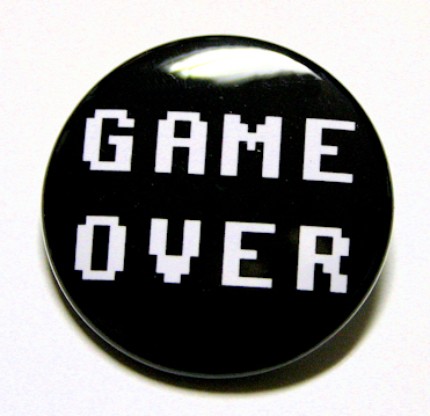 My name is Paul Eastwood and I used to write for this site. Not only did I write, I hosted and produced the one and only official First Hour Podcast (accept no substitutes!) Where have I been for the past however-many-months? Well, I’ll explain a little of that in this post, the follow-up to my last post, in which I discussed adults who grew up with video games.
My name is Paul Eastwood and I used to write for this site. Not only did I write, I hosted and produced the one and only official First Hour Podcast (accept no substitutes!) Where have I been for the past however-many-months? Well, I’ll explain a little of that in this post, the follow-up to my last post, in which I discussed adults who grew up with video games.
To put it simply, I don’t play games any more. In fact the date of the last podcast closely coincides with the last time I played a video game. Now I know what you’re thinking: “What in the zarking fardwarks?” I suppose it is hard to imagine. Me, who spent so much effort to carve out time to play video games. Me, whose childhood and high-school years are largely dominated by what games I was playing at the time. Me, whose normal conversation incorporates similes involving obscure video game characters.
Read moreJune 22, 2011 by Nate
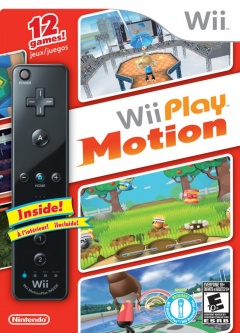 "Gathering dust" has become the meme of regretful Wii owners everywhere. I can't even count the number of times I've seen these words used to complain about the dearth of worthwhile Wii games. As someone who has found plenty of variety and quality in Gamecube 1.1's software lineup, I've let out innumerable deep sighs in response.
"Gathering dust" has become the meme of regretful Wii owners everywhere. I can't even count the number of times I've seen these words used to complain about the dearth of worthwhile Wii games. As someone who has found plenty of variety and quality in Gamecube 1.1's software lineup, I've let out innumerable deep sighs in response.
And yet, I must admit that my Wii has sat silent for over six months now. After a year that I wouldn't hesitate to call the system's very best, even the most forgiving Nintendo fanboys couldn't deny that Wii has been a ghost town in 2011.
But all that changes now, as I just picked up the brand new Wii Play Motion! Yes, I think it's safe to say that the 2011 Wii drought is officially over. Because if anything can get hardcore gamers excited about Wii again, it's a minigame collection bundled with a controller!
All sarcasm aside, Wii Play Motion's various motion-centric minigames were created by several different studios, tasked with outdoing each other in finding a fun and unique use of the bundled-in Wii Remote+'s capabilities. Featuring such contributors as Prope (Yuji Naka's new studio) and Good-Feel (the minds behind the excellent Wario Land: Shake It and Kirby's Epic Yarn), it at least has an interesting pedigree. Or a collection of interesting pedigrees, I guess.
So I synced my pretty new Wii Remote+ and popped in the disc. In just over an hour, I tried out every singleplayer minigame in the collection (as far as I know). And lucky you, I recorded video of all of them! Hopefully each video will give you an idea of how the player interacts with the minigame and what kind of depth it may offer.
Read moreJune 20, 2011 by Greg Noe
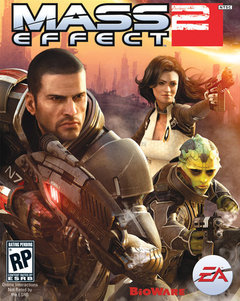 With Lair of the Shadow Broker, Mass Effect 2 finally gets the add-on fans have been waiting for. Additional characters in Zaeed and Kasumi are great, and Overlord was a decent side story, but Shadow Broker is the real deal.
With Lair of the Shadow Broker, Mass Effect 2 finally gets the add-on fans have been waiting for. Additional characters in Zaeed and Kasumi are great, and Overlord was a decent side story, but Shadow Broker is the real deal.
The DLC not only brings back fan favorite Liara from Mass Effect 1, but features a pair of excellent boss fights and some awesome action set pieces. There’s also a handful of bonuses available after the action is over, extending and expanding upon the main game’s feature set.
Available for 800 MS Points ($10) since July 2010, here’s my review of Mass Effect 2’s penultimate DLC, Lair of the Shadow Broker.
Read moreJune 17, 2011 by Greg Noe
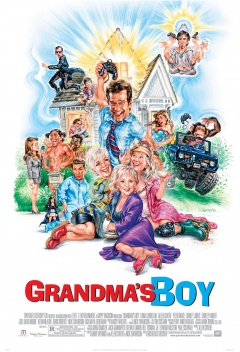 Stay with me for a moment. Yes, I’m reviewing Grandma’s Boy, the lowbrow comedy produced by Adam Sandler five years ago starring Allen Covert. Yes, its connections to video games is loose, but when I started reviewing movies a few years ago, I didn’t just want to write about crappy game-to-movie adaptations (see Lara Croft Tomb Raider: The Cradle of Life). I also wanted to write about movies about video games, even if they’re just used as a backdrop and MacGuffin (see Grandma’s Boy).
Stay with me for a moment. Yes, I’m reviewing Grandma’s Boy, the lowbrow comedy produced by Adam Sandler five years ago starring Allen Covert. Yes, its connections to video games is loose, but when I started reviewing movies a few years ago, I didn’t just want to write about crappy game-to-movie adaptations (see Lara Croft Tomb Raider: The Cradle of Life). I also wanted to write about movies about video games, even if they’re just used as a backdrop and MacGuffin (see Grandma’s Boy).
But buried beneath all the gross out humor, pot smoking, and before-he-was-famous-but-still-fat Jonah Hill, there’s actually quite a bit of video gaming in Grandma’s Boy. Some of it is flat-out hysterically wrong, but a small chunk is actually interesting video game history.
So here’s my review of Grandma’s Boy, focused mostly on the relevant video game aspects of the film, without forgetting Freaks and Geeks’ awesome Linda Cardellini.
Read moreJune 15, 2011 by Nate
 I vividly recall some trials and frustrations in my time with the original inFAMOUS (not the least of which was that horrible spelling which will henceforth be abandoned), but overall I really enjoyed the game. As much as the sticky platforming, messy mission design, and transparent morality system bothered me, I ultimately had a great time surfing on power lines, tossing electric grenades, and guiding a concentrated lightning storm down alleys of soon-to-be-corpses. It was inevitable that the game would get a sequel due to its ending (and the sad, predictable nature of this industry), and I really hoped that Sucker Punch would iron out a few of the teeth-grating problems I had with the original.
I vividly recall some trials and frustrations in my time with the original inFAMOUS (not the least of which was that horrible spelling which will henceforth be abandoned), but overall I really enjoyed the game. As much as the sticky platforming, messy mission design, and transparent morality system bothered me, I ultimately had a great time surfing on power lines, tossing electric grenades, and guiding a concentrated lightning storm down alleys of soon-to-be-corpses. It was inevitable that the game would get a sequel due to its ending (and the sad, predictable nature of this industry), and I really hoped that Sucker Punch would iron out a few of the teeth-grating problems I had with the original.
Lo and behold, it's one month and two years later, and there's another Infamous game. Boasting a locale with more colors than gray, melee combat that's not completely worthless, and the promise of acquiring more elemental powers, Infamous 2 certainly seems like the kind of sequel that boasts incremental improvements over the original and hasn't yet worn out the franchise's welcome. Pretty typical of a "2," really.
I find it amusing that the game arrived in my mailbox last Monday, the same day that Sony featured a trailer from the game in its E3 conference. Shortly after their presentation, I had my first taste of Infamous 2. I grabbed three clips from my first hour: arrival at the new sandbox city of New Marais, the first new power tutorial, and an early choice between good and evil sidequests.
Read moreJune 13, 2011 by Paul Abbamondi
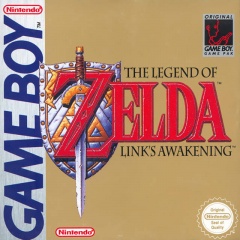 My favorite game is—and most likely will always be—The Legend of Zelda: A Link to the Past. It's a videogame that raised me, coddled me through the early years, showed me the potential games held, and reminded me that there's still good in this world. And strangely, there's never been anything quite like it since its debut way back in November 1992. I guess some games do come close: 3D Dot Game Heroes, Alundra, Beyond Oasis, and Dragon Quest Heroes: Rocket Slime. Not surprisingly, nobody does Zelda quite like Nintendo.
My favorite game is—and most likely will always be—The Legend of Zelda: A Link to the Past. It's a videogame that raised me, coddled me through the early years, showed me the potential games held, and reminded me that there's still good in this world. And strangely, there's never been anything quite like it since its debut way back in November 1992. I guess some games do come close: 3D Dot Game Heroes, Alundra, Beyond Oasis, and Dragon Quest Heroes: Rocket Slime. Not surprisingly, nobody does Zelda quite like Nintendo.
Nintendo's 2011 E3 conference opened with some love for the Zelda franchise, now twenty-five years big, and a surprise announcement was that The Legend of Zelda: Link's Awakening was going to be available very soon on the Nintendo 3DS eshop. Sadly, I never got to experience this game before on the GameBoy, and a quick bit of research revealed that it both looked and played similar to what I consider to be gaming nirvana. Well, I downloaded it as soon as I could. Let's hope it lives up to my lofty expectations...
Read more
June 10, 2011 by Greg Noe
 About a month and a half ago I bought my first smartphone, the EVO 4G. It's an excellent phone with a huge screen and lovely graphics. Being a device paid for and intended for work, the first thing I did with it was download a bunch of games. I gave my wife an iPod Touch a year and a half ago so I was pretty familiar with the mobile gaming scene and have posted reviews on various games including Plants vs. Zombies, Dead Panic, and Bad Cube.
About a month and a half ago I bought my first smartphone, the EVO 4G. It's an excellent phone with a huge screen and lovely graphics. Being a device paid for and intended for work, the first thing I did with it was download a bunch of games. I gave my wife an iPod Touch a year and a half ago so I was pretty familiar with the mobile gaming scene and have posted reviews on various games including Plants vs. Zombies, Dead Panic, and Bad Cube.
Right now I would say that the Android gaming scene is doing just okay. Most of the games are simply ports from iOS and the original games aren't incredibly original. The platform doesn't really have that single iconic gem that is Android's and Android's alone. I'm sure it will come in the future, but for now, we'll have to be satisfied with seconds.
Today I'll just be covering the Angry Birds games, but I plan to write more about the Android gaming platform in the future.
Read moreJune 08, 2011 by Nate
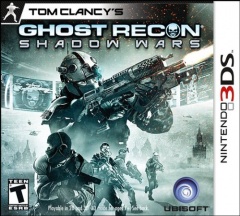 Very few titles available at a system's launch are ever worth the price of admission. Thing is, they don't have to be: early adopters don't have any other choices, and they certainly aren't taking home that shiny new box with nothing to play. If a launch window game isn't a glitchy, feature-stripped port of a last-gen game, then it may just be the best of the bunch.
Very few titles available at a system's launch are ever worth the price of admission. Thing is, they don't have to be: early adopters don't have any other choices, and they certainly aren't taking home that shiny new box with nothing to play. If a launch window game isn't a glitchy, feature-stripped port of a last-gen game, then it may just be the best of the bunch.
Ubisoft in particular doesn't have a great track record when it comes to launch games. They were the first third party to reveal their Wii hand with the ambitious and roundly disappointing Red Steel, threw straight up shovelware at the DS, and didn't exactly set any precedents at the dawn of the HD era, either. For the 3DS, Ubi's launch day contributions took the forms of Rayman 3D, Asphalt 3D, Combat of Giants: Dinosaurs 3D, and Ghost Recon: Shadow Wars.
It doesn't surprise me, then, that Ghost Recon: Shadow Wars is a technical mess. The visuals wouldn't turn heads on PSP, slowdown is common, and everything just feels rough around the edges. Oh, and then the game freezes every now and then. Sometimes you'll get the black screen of death, other times the audio will stop and the display will just fade out. In the time I was playing, Shadow Wars crashed on me a grand total of ten times.
What surprises me is that, despite these glaring technical issues, I will still recommend the game to 3DS early adopters.
Read moreJune 06, 2011 by Greg Noe
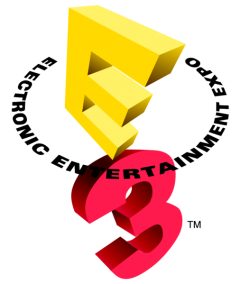 E3 2011 is upon us, and while we aren't doing our full blown E3 prediction articles along with daily updates, we are still mighty excited about it. Nintendo's new console will be revealed and we'll hopefully see some new and exciting games for existing consoles including the 3DS, Kinect, and Move. I'm personally looking forward to taking in all the Mass Effect 3 details I can, and will probably be refreshing my Twitter feed (chock full of game developers) every few minutes.
E3 2011 is upon us, and while we aren't doing our full blown E3 prediction articles along with daily updates, we are still mighty excited about it. Nintendo's new console will be revealed and we'll hopefully see some new and exciting games for existing consoles including the 3DS, Kinect, and Move. I'm personally looking forward to taking in all the Mass Effect 3 details I can, and will probably be refreshing my Twitter feed (chock full of game developers) every few minutes.
I'll just take a quick moment to lay out some of my simple predictions that I haven't thought very hard about. Someone at Game Informer suggested that Zelda: Skyward Sword would be delayed/moved to the new Wii console, this seems to make sense, but I'm betting on a dual-system release like we saw with Twilight Princess. Yeah, you could buy Skyward Sword on that old Wii and play in 480p, but over here we have high definition Zelda running in 1080p with the touchscreen controller.
Read more